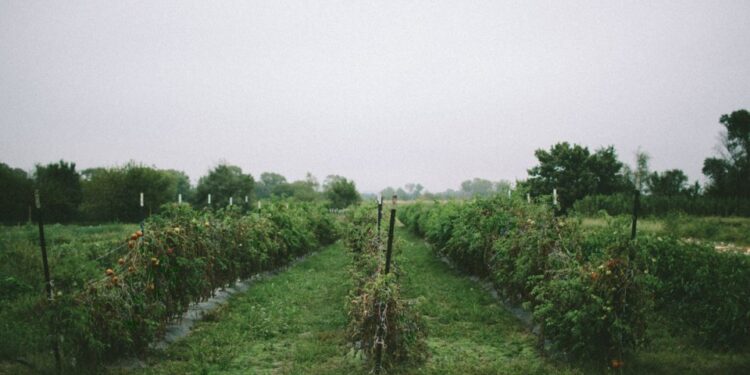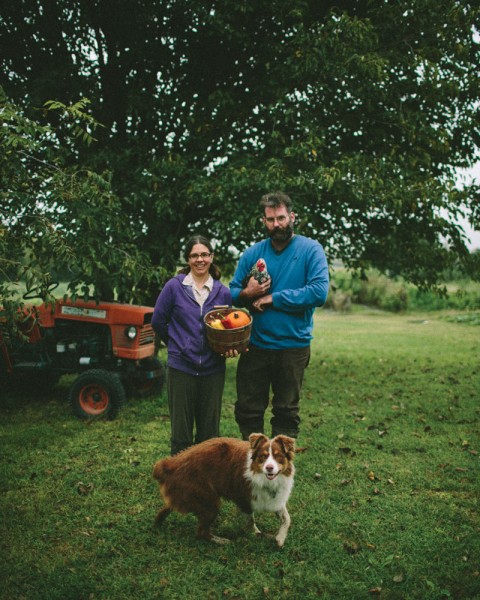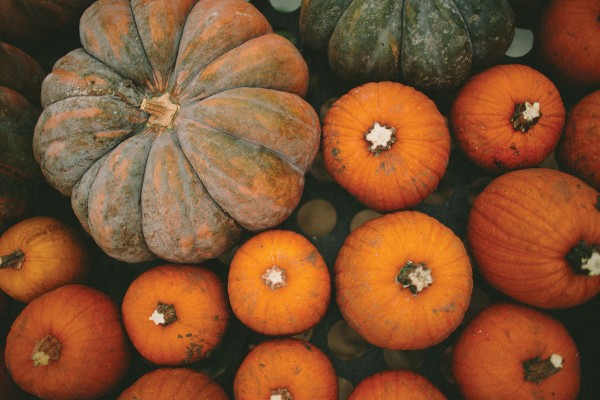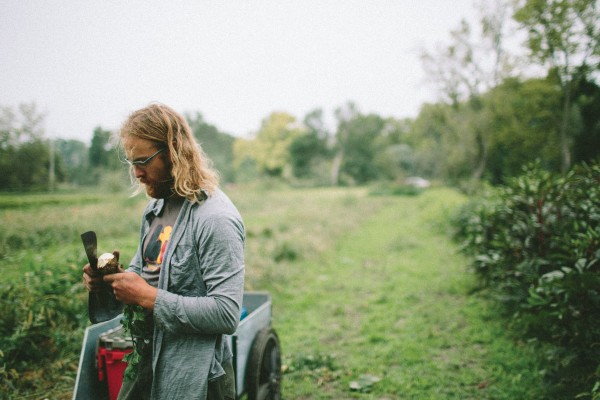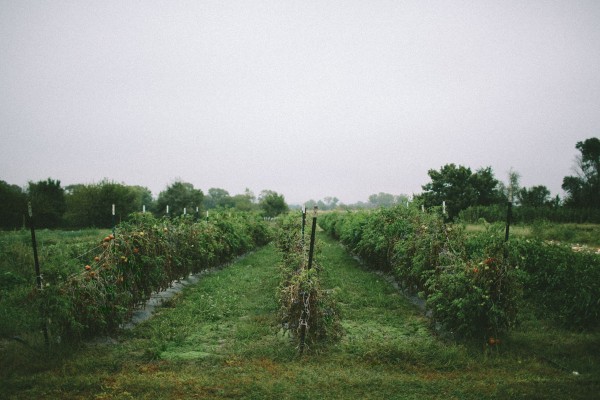The rhizosphere is defined as the top layer of the earth’s soil.
“It’s the living layer,” Terra Hall explains. “It’s where all the magic happens.”
Rhizosphere Farm, then, is a perfect moniker as Terra and her husband, Matthew, conjure Mother Nature’s magic on their 5.5-acre Loess Hills farm nurturing heirloom, organic vegetables, fruits, and herbs throughout the growing season.
As the rhizosphere now sleeps through late fall and winter, the Halls plan and prep for 2016. If you’re the type to wistfully recall summer’s sweet bounty in the face of a fall chill and you’re already pining for the return of farmers markets, here’s a look back at Rhizosphere Farm at its seasonal summit.
“It’s the best time of year to eat,” says Terra of August’s abundant end. As lunch is served in the Halls’ log cabin, Coner, a Polish-breed rooster with a hair-metal crest of feathers obscuring his vision, crows intermittently outside. Summer, though not yet eclipsed by fall, can be felt leaning into its swan song.
The meal, shared with intern Patrick Laird and groundskeeper Ted Engles, comes from the field: a spicy tomato gazpacho with onions and herbs, baba ghanoush, carrots, salad, and a potato-leek dish. Farmhand and good friend Dakia Anheluk rounded out the 2015 Rhizosphere crew, helping considerably when health issues had earlier sidelined Terra.
Matthew is from Omaha and Terra is from Council Bluffs, but they actually met in Oregon when working at Horton Road Organics. Over lunch, the Halls explain how they became farmers.
“I needed a job and lived up the road,” says Matthew in his characteristically succinct manner of speaking before elaborating that he enjoys working with his hands and deeply values “a hard-ass day of labor. What we do in our field is a form of art which tunes us into the true nature of the world as humans were meant to experience it,” he says.
Terra, whose name is fittingly Latin for “earth,” was a campaign organizer at the University of Oregon before realizing activism wasn’t her path to “change the world.” When she started at Horton, she immediately knew she’d found a calling in organic farming.
“I love the connections with nature and the people I grow food for,” she says. “We’re sometimes missing those connections in our culture.”
The Halls returned to the Midwest, dream of Rhizosphere in hand, and rented land in Waterloo, Nebraska, in 2009. A growing urge to put down permanent roots and perennials on a plot of their own culminated in the September 2013 purchase of their land.
While Rhizosphere’s a scant 20-minute drive from downtown Omaha, visitors enjoy escaping the city’s hustle and bustle. But the Halls hustle plenty on this plentiful land, working seven days a week March through October. They supplement their income with off-season carpentry and retail jobs.
Rhizosphere grew 35 varieties of crops this past season and now counts such notables as Dante and The Grey Plume as clients.
“We hit at the right time,” in the farm-to-table movement, says Terra.
“Boiler Room was our first [customer],” says Matthew. “And Nick (Strawhecker) at Dante got our number from them.”
“That’s one of the cool things about Omaha’s wonderful food community,” says Terra. “It’s very cooperative, sharing resources and information, which just makes everybody better.”
The Halls also enjoy a more public profile at farmers markets.
“A light goes on in people and it creates great conversations about the farm, how the food is grown, how it can be cooked,” says Terra. “That’s the best way to pass information about food. Those conversations are some of the most important work we do.”
Love of that educational aspect and a desire to create a more sustainable, all-season outlet for their passion has the Halls considering evolving Rhizosphere into an educational nonprofit, adding classes, workshops, events, and community-building to its mission.
“The Universe gave me a little time off this year,” says Terra, “which provided perspective. I’m passionate about designing the space and creating a permaculture foodscape, and I love teaching people that. I was so inspired by the people who taught me, and I want to pass that on.”
After lunch, Engles gives a tour of the land. It’s ordered, yet still wonderfully wild. A flock of ducks waddle by as he points out the greenhouses, barn, and an old stable, which Matthew has partially converted into additional sleeping quarters. Various fruits, herbs, and veggies flourish in the field alongside towering, yellow-flowered, now-dormant sunchokes—which Terra discussed in a May 2015 New York Times feature on Omaha’s farm-to-table prowess. The diverse, young “food forest” concept uses companion planting—a common permaculture concept ensuring a healthier ecosystem requiring less work through intelligent design. Yellow, heirloom cherry tomatoes are sampled right off the vine before the tour returns to its genesis, now swarmed by a wandering peep of clucking chickens.
There are no rabbits pulled from hats or “abracadabras” uttered here, but Rhizosphere’s magic is palpable.
Visit rhizopherefarm.org to learn more.

